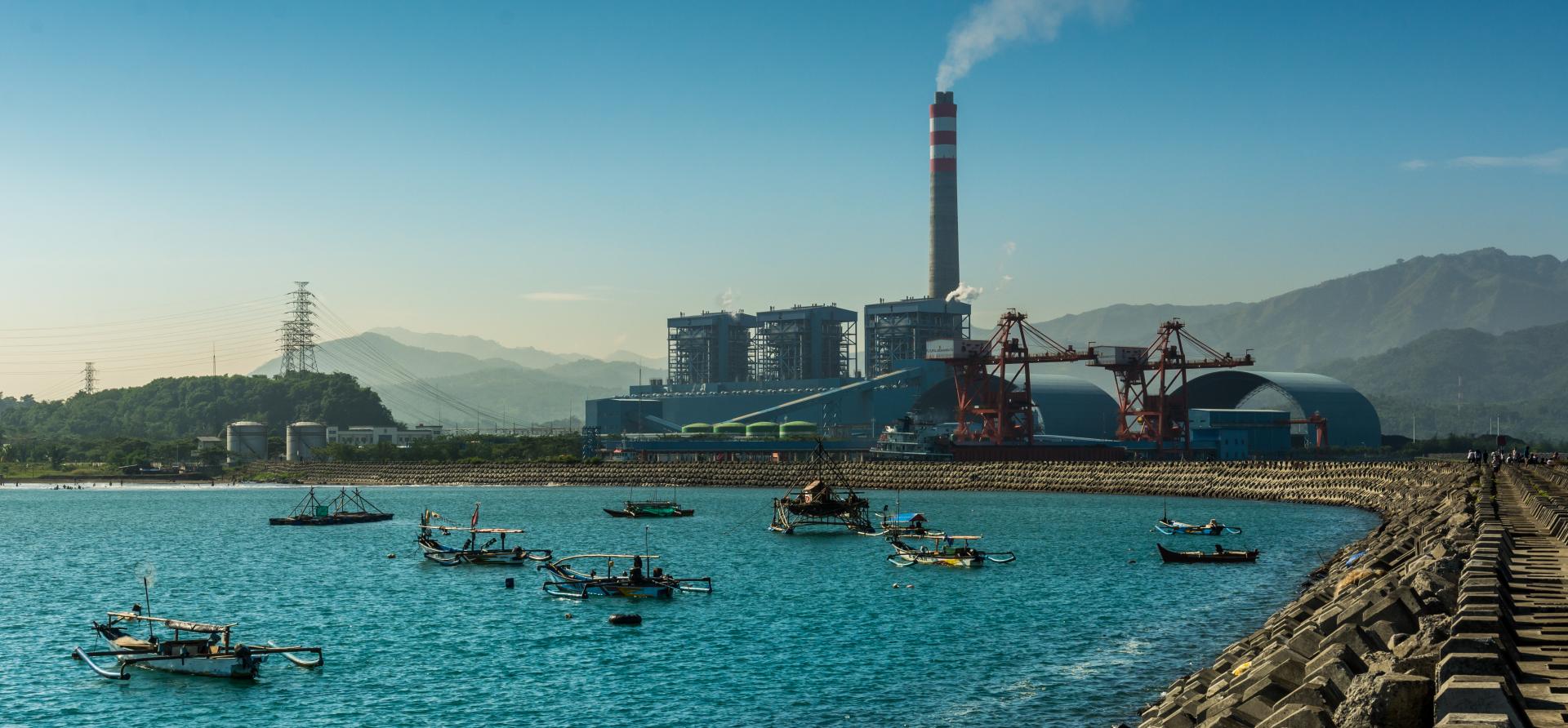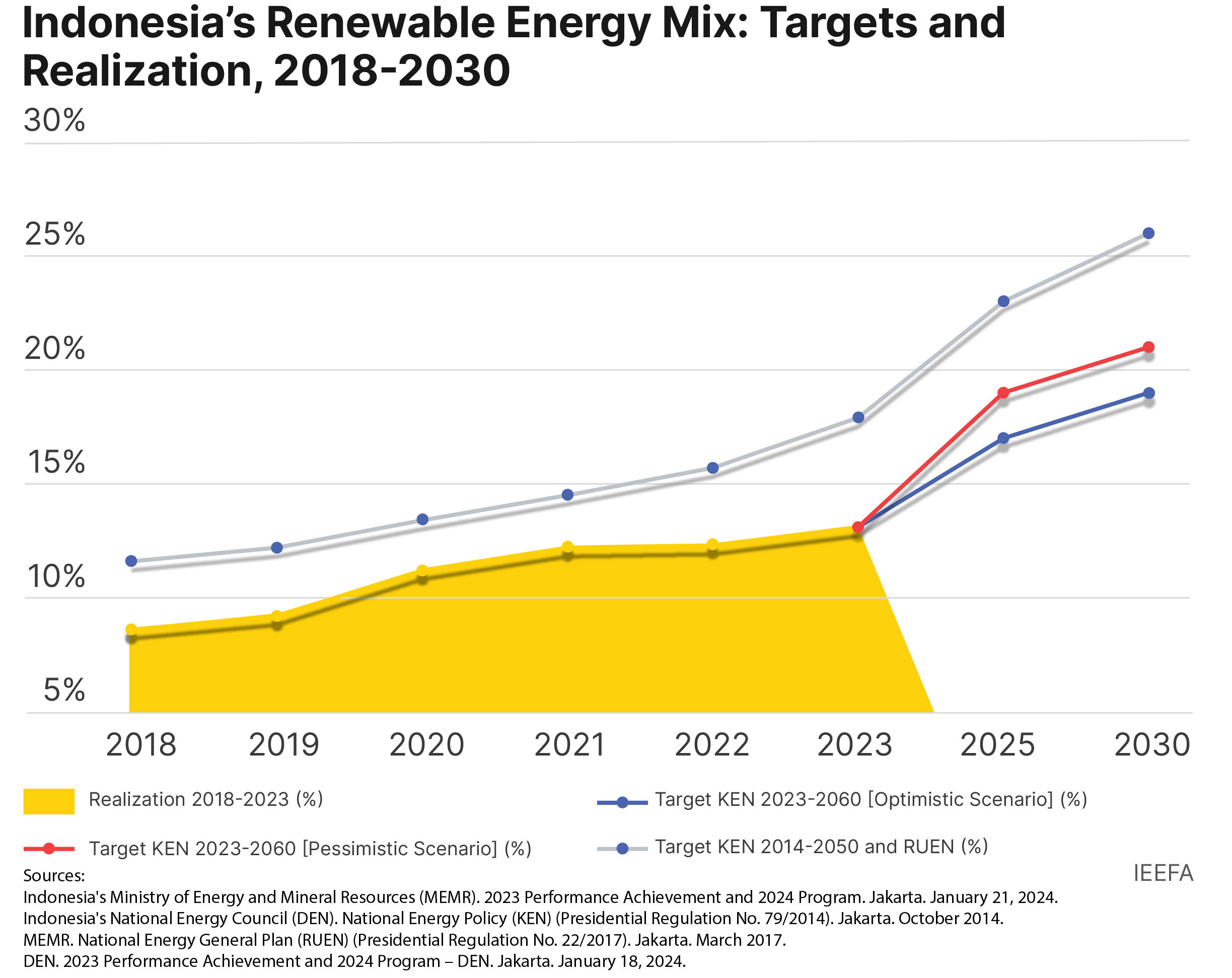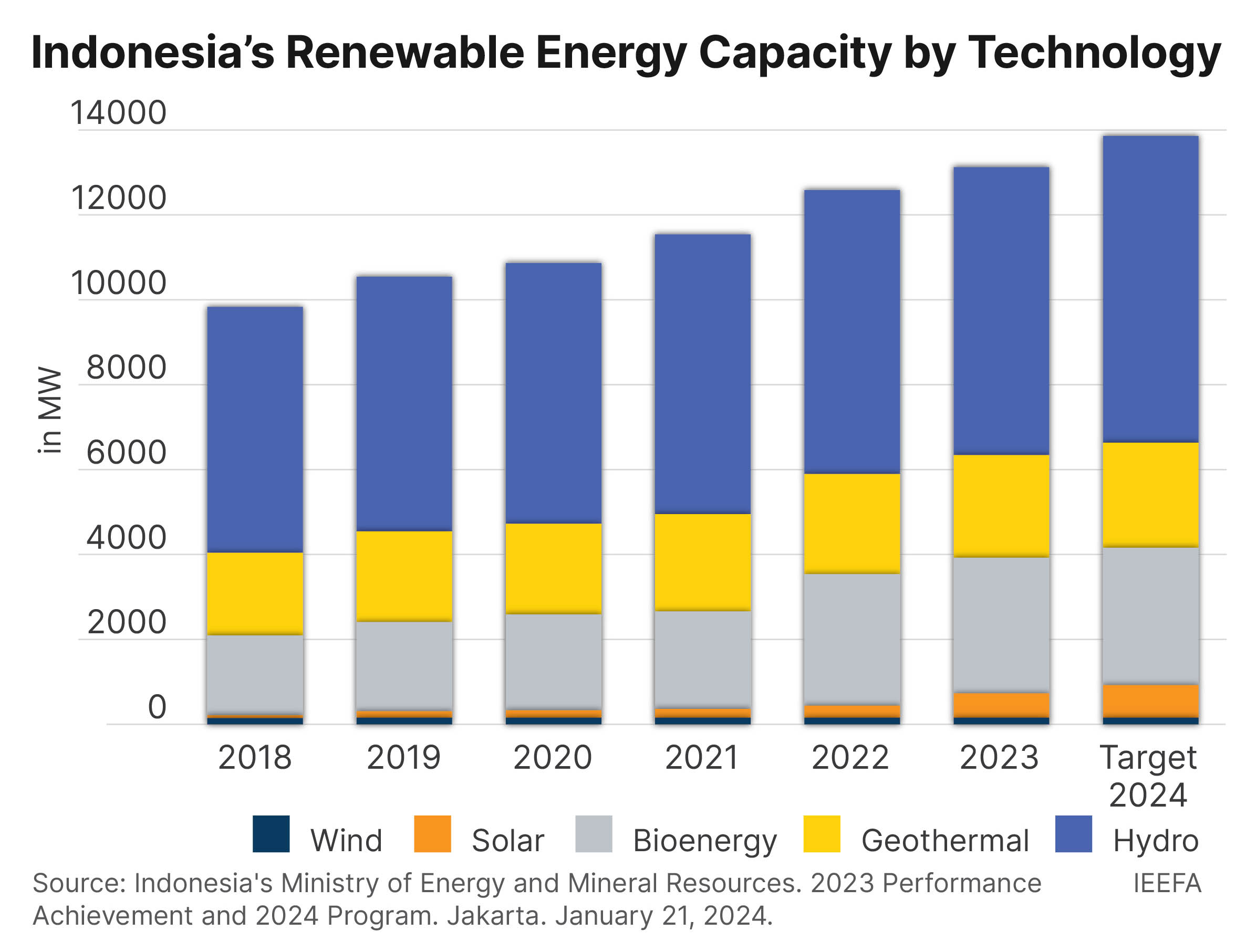The dark cloud over Indonesia’s pledge to achieve net-zero emissions by 2060

Key Findings
Indonesia plans to reduce its renewable energy target from 23% to 17%-19% in 2025 and 26% to 19%-21% in 2030. Such a move signals the government's low commitment to the energy transition and prolongs Indonesia’s high dependence on fossil fuels.
Indonesia has failed to meet its renewable energy target for the past five years, and the current share of renewable energy in the electricity mix is 13.1%, well below the target of 17.9% in 2023.
Identifying and addressing the root of the problems and the challenges behind the slow progress in achieving Indonesia's renewable energy target is important to support the country's energy transition.
Moving in the opposite direction from the rest of the world, Indonesia plans to lower its renewable energy ambitions by 2030.
Just more than two months ago, the 28th UN Climate Change Conference (COP28) concluded with a landmark agreement wherein 123 countries committed to tripling the world’s installed renewable energy (RE) generation capacity to at least 11,000 gigawatts (GW) by 2030, transitioning away from fossil fuels, doubling energy efficiency improvements, and accelerating methane-emission reductions.
In Indonesia, outgoing President Joko Widodo has consistently reinforced the country’s vow to achieve Net-Zero Emissions (NZE) by 2060 or sooner. Despite this, the Government of Indonesia (GOI) opted not to sign the global renewable and energy efficiency pledge at COP28, raising questions about whether Indonesia’s NZE target will be met.
Currently, Indonesia’s National Energy Council (DEN) is working on updating Government Regulation No. 79 of 2014 concerning the National Energy Policy (KEN), which is slated for completion this June.
The draft, currently under discussion with the House of Representatives, would reduce the national RE target for 2025 from 23% of total energy to 17%-19%, based on the new assumption that Indonesia can only increase the RE portion by around 2% to 3% per year. Similarly, for 2030, the draft KEN reduced the RE target from 26% to 19%-21%. Such moves could signal low government commitment to the energy transition and prolong Indonesia’s high dependence on fossil fuels.

The new draft policy target is not aligned with the GOI’s commitments under its Nationally Determined Contributions (NDC) submitted to the United Nations Framework Convention on Climate Change. Such backtracking could jeopardize the US$20 billion Just Energy Transition Partnership (JETP) investment proposal being negotiated by the government with multiple donor governments, philanthropies, and the private sector, in which Indonesia proposed to achieve a 44% RE target by 2030, up from the previous 2022 JETP Joint Statement target of 34%.
Indonesia’s consistent failure to reach its RE target
Over the past five years, Indonesia’s incremental RE contributions to the primary energy and electricity generation mix increased only 1% to 2% per year. The current share of RE in the electricity mix is 13.1%, well below the 2023 target of 17.9%, with a capacity of 13.2 GW comprising 94.5% of hydroelectric, biomass, and geothermal.

By reducing their targets, the GOI acknowledges that their current RE delivery process is failing. As Indonesia prepares for a change in administration, with the outgoing President Joko Widodo’s term concluding in October, the nation is at a pivotal juncture. The incoming President and administration will inherit the significant task of advancing Indonesia’s commitment to achieving NZE by 2060 or earlier.
The incoming government needs to make new and extra efforts to ensure that even the reduced target is met. They must identify the root of the problem and make necessary adjustments to its policies, regulations, and processes to support the energy transition. There are several challenges and issues that the incoming government needs to overcome.
First, Indonesia’s lack of a clear and consistent regulatory framework for RE development demonstrates a lack of government commitment while raising concerns among investors and financial institutions. Although Indonesia has issued several regulations that support the RE environment in concept, the details of their practical implementation remain in question, making the sector appear highly risky and the country less attractive to investors.
Second, the GOI would benefit from re-evaluating its fossil-heavy strategy by understanding that the energy transition can create broad investment opportunities and widen job creation across the archipelago. Low-cost solar and wind renewables can be a rapidly deployed, economically sustainable solution while making material progress toward NDCs, as demonstrated in many other countries. Moreover, the continually decreasing lifecycle cost of solar, wind, and battery storage technology can create fiscal benefits for the government, especially the financially struggling national utility, Perusahaan Listrik Negara (PLN).
Third, creating a clear and transparent process for project procurement is important to unlock renewables' investment potential. As demonstrated in other Southeast Asian markets, RE can catalyze various domestic and foreign investments, local lending, and technological innovations.
Indonesia’s RE tariffs have been set considerably lower than those of other countries in the region that are more advanced in RE realization. Furthermore, in the RE procurement process, the winner is determined by the lowest tariff proposed by the bidder, which makes the tariff even lower.
PLN’s aggressive equity co-ownership demands in recent renewable project tenders discourage international bidders. These factors make it difficult for prospective investors to understand how they will earn appropriate returns for their investments, adding barriers to an already risky business.
The incoming government needs to address these structural challenges and create policies and regulations that make the RE sector more accessible, certain, and profitable for potential investors.
Collaboration between the government, private sector, and civil society, along with robust policy frameworks, will be instrumental in overcoming these challenges and steering Indonesia toward an economically and environmentally sustainable net-zero future.
Read this commentary in Bahasa Indonesia.















